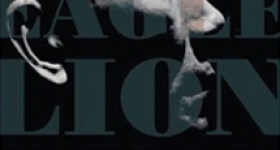Fans of the hit tv cop drama Rizzoli and Isles could be excused for not knowing that the series
is an Asian American product. The show -- whose twist on the basic police
procedural is the friendship between a traumatized policewoman and an OCD
medical coroner -- is based on a popular mystery series by Chinese American
M.D. Tess Gerritsen, which until now has featured no Asian American
protagonists.
Gerritsen joined the crime fiction world 23 novels ago with
a medical procedural, and has continued to leverage her expertise in her
fiction. She developed the Rizzoli (detective) and Isles (coroner) characters
in separate novels, before bringing them together in a winning formula. Her latest
book in the series, The Silent Girl,
is her first novel featuring Asian American characters -- and it shows.
The Silent Girl
sends Rizzoli and Isles in to investigate a murder in Boston's Chinatown, where
they find -- wait for it -- monkey hairs on the victim's body. Chapters in the
third-person, mystery-novel mode alternate with a first-person narrator whose
identity isn't immediately clear, and whose language has too much ching-chong diction
for my taste. The mysterious narrator hints at superhuman martial arts and
Chinese mythology. Add to that a perp who doesn't show up on surveillance
footage, a woo-woo tone, and scenes of fog and nighttime, and we're offered the
possibility that sumpin' supernatural's goin' on. That's right, the Monkey King
is a suspect.

The clues lead us to a decades-old Chinatown mass murder,
and a whiff of that crime-drama standby, a serial killer. No, wait, a serial
killer who prefers teenaged girls. Can I just register here my utter weariness
of crime fiction that continues to torture, rape, and murder attractive young
women for the increasingly tired jizz of a jaded audience? I cry foul. A woman
writing women protagonists has even less excuse, especially in a novel with no
less than four "kickass" lead women characters.
In spite of (or, to be fair, perhaps because of) this lame
formula, Gerritsen's long experience in the genre comes through in a tightly
paced, well-plotted story. But her use of Boston's tiny Chinatown, a pair of
preternaturally skilled female martial arts masters, and a view of Chinese
Americans that can only be called exotic, sets Asian American literature back
as many years as it purportedly takes to soak a tea egg. It also busts this
novel out of the world of unrealistic, but plausible, American crime fiction,
leaking Big Trouble in Little China
and Hong Kong wire stunt kung fu into a context where they don't belong.
This is what comes from reaching for tropes and clichés
rather than experience: I don't see murder, mayhem, or drunken-master stylings
on Gerritsen's resume. But maybe she just doesn't know how to make her
medical-school-graduatin', out-marryin', model-minority background interesting
enough to keep a mystery audience riveted -- although there's definitely room
for such in a standard crime fiction.
But then, maybe she can learn. Her upcoming novel apparently
builds off of The Silent Girl. Let's
hope she leaves the grasshoppers and joss sticks at home next time.









Comments